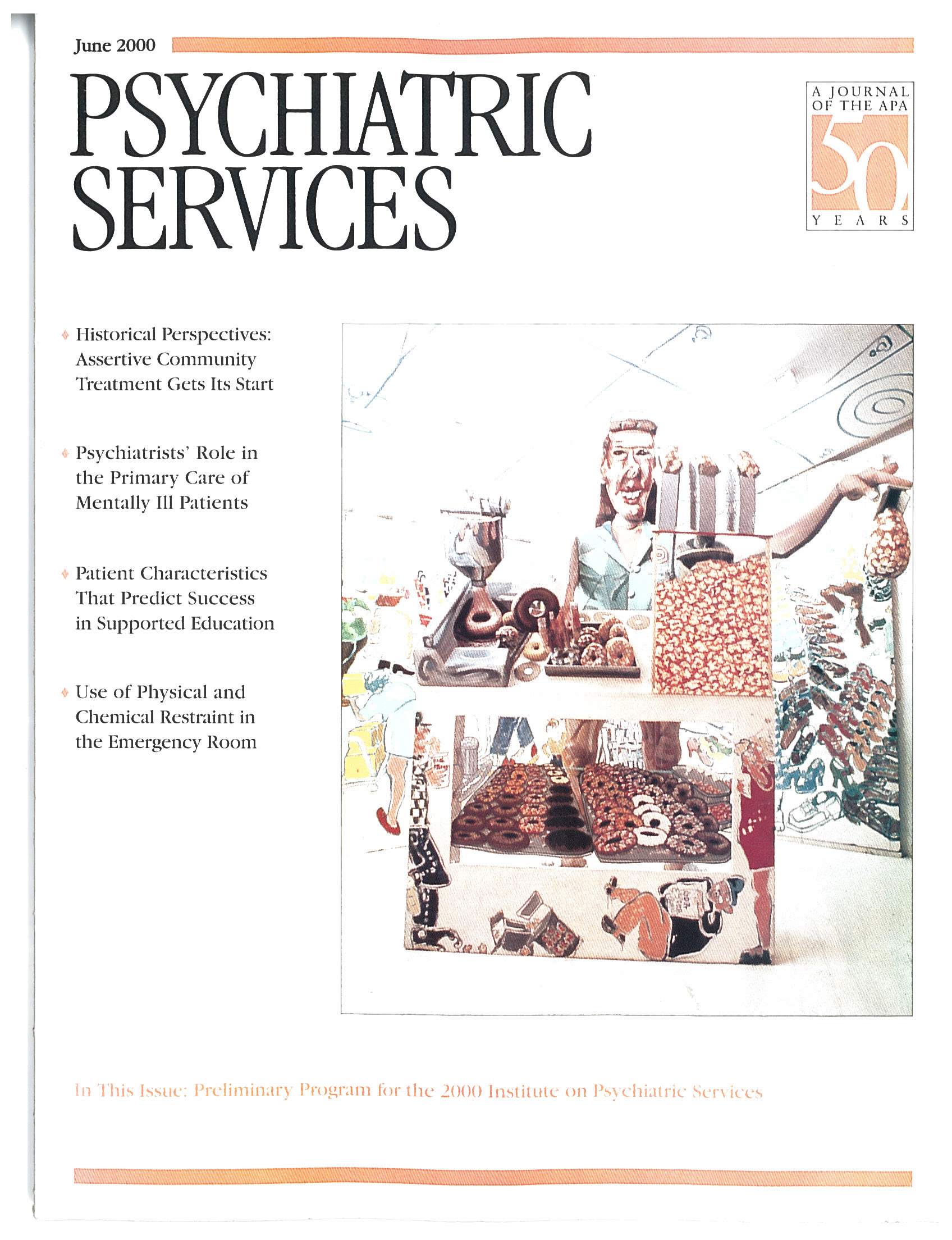Medication Samples and Drug Compliance
To the Editor: Poor compliance with therapeutic regimens has been reported in all fields of medicine (1). A number of variables have been shown to influence compliance (2). Even though the use of medication samples is widespread, its impact on compliance has not been explored. The study reported here hypothesized that giving patients medication samples, as opposed to a prescription, would increase the initial adherence to pharmacotherapy after a psychiatric evaluation.
All patients who were discharged from a psychiatric emergency room or from an ambulatory evaluation center between May 1998 and April 1999 were considered for the study. Inclusion criteria were that the patient be 18 years of age or older, have a primary diagnosis of a depressive or anxiety disorder, and have used no psychotropic medication for one month before the evaluation. Patients with dementia, schizophrenia, bipolar disorder, or substance use disorder were excluded. The Mini International Neuropsychiatric Interview was used to derive a DSM-IV diagnosis.
The decision to initiate pharmacotherapy for discharged patients was made by board-certified psychiatrists (the first and second authors). Patients were randomly assigned to receive a prescription or the actual pills. Patients were not told the purpose of the study in order to avoid a biased response.
One week after discharge, a psychiatric nurse practitioner (the third author) conducted a structured telephone interview with the patients to determine whether they had taken their medication daily (100 percent compliance), one time or several times (1 percent to 99 percent compliance), or not at all (0 compliance). The interviewer was aware of the patients' medication status.
One hundred and forty patients were started on psychiatric medication at discharge. Of these, 108 (77 percent) were reached after one week to evaluate compliance. Thirty-eight were male, and 70 were female; their mean±SD age was 35.6± 10.9 years. Fifty-four were given pill samples, and 54 received prescriptions.
The medications prescribed were selective serotonin reuptake inhibitors (N=81), other antidepressants (N=27), atypical antipsychotics (N=3), and benzodiazepines (N=3). After a mean of 7.1±1.2 days, 68.5 percent (N=37) of the patients who received prescriptions reported 100 percent compliance, compared with 87 percent (N=47) of the patients who received the pill samples, a statistically significant difference (χ2= 5.41, df=1, p<.025). In the prescription group, 9.3 percent (N=5) were not at all compliant, compared with 3.7 percent (N=2) in the sample group. A chi square analysis including all three levels of compliance showed a trend for the two groups to differ in level of compliance, but the difference was not statistically significant.
The study had several limitations, including a short follow-up period, the assessment of compliance by a telephone interview, and the fact that it may not be generalizable to more severely ill patients. Nevertheless, the findings indicate that use of medication samples to enhance compliance deserves further study.
The authors are associated with St. Francis Medical Center in Pittsburgh, Pennsylvania.
1. Cramer JA, Rosenheck R: Compliance with medication regimens for mental and physical disorders. Psychiatric Services 49:196-201, 1998Link, Google Scholar
2. Bastiaens L: Compliance with pharmacotherapy in adolescents: effects of patients' and parents' knowledge and attitudes towards treatment. Journal of Child and Adolescent Psychopharmacology 5:39-48, 1995Crossref, Google Scholar



